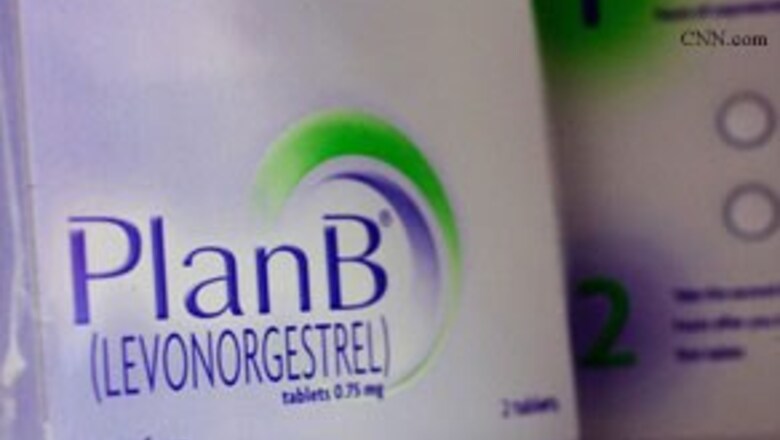
views
Washington: The "morning-after pill" will be available without a prescription to women 17 and older, the US Food and Drug Administration said on Wednesday. The minimum age has been 18.
PlanB, also called the morning-after pill, is intended to prevent pregnancy after unprotected sex.
On March 23, a federal court ordered that PlanB, an emergency contraception pill, be made available over the counter to those 17 and up, the agency said in a statement on its Web site. The agency will not appeal that order, the statement said.
In the order, US District Judge Edward Korman also asked the agency to consider whether the pill should be available to women of all ages without a prescription, saying that such a determination is best left to the expertise of the FDA rather than a federal district judge.
And he rebuked the FDA for apparently departing from its own procedures with respect to making decisions on the pill's over-the-counter status, noting the "unusual involvement of the White House in the PlanB decision-making process."
The plaintiffs in the case presented "unrebutted evidence of the FDA's lack of good faith" toward the application to switch PlanB from prescription to non-prescription use, the judge wrote.
"This lack of good faith is evidenced by, among other things, (1) repeated and unreasonable delays, pressure emanating from the White House, and the obvious connection between the confirmation process of two FDA commissioners and the timing of the FDA's decisions; and (2) significant departures from the FDA's normal procedures and policies ... as compared to the review of other switch applications in the past 10 years," Korman wrote.
In August 2006, the FDA approved the sale of PlanB without a prescription to those 18 and older, but those 17 and under needed a prescription to obtain it.
But, the agency said in Wednesday's statement, "in accordance with the court's order, and consistent with the scientific findings since 2005 by the Center for Drug Evaluation and Research, FDA sent a letter to the manufacturer of PlanB that the company may, upon submission and approval of an appropriate application, market PlanB without a prescription to women 17 years of age and older."
"No useful purpose would be served by continuing to deprive 17-year-olds access to PlanB without a prescription," Korman wrote in his order. "Indeed, the record shows that FDA officials and staff both agreed that 17-year-olds can use PlanB safely without a prescription. The FDA's justification for this age restriction, that pharmacists would be unable to enforce the prescription requirement if the cutoff were age 17, rather than 18, lacks all credibility."
Planned Parenthood Federation of America President Cecile Richards said in a statement that the FDA's announcement is "a strong statement to American women that their health comes before politics. And that's the way it should be. This decision is common-sense policy that will help reduce the number of unintended pregnancies and protect the health and safety of all women."
The morning-after pill -- made by Duramed, a subsidiary of Barr Pharmaceuticals -- is intended to prevent pregnancy after unprotected sex. It works by stopping ovulation and decreasing the chances that a fertilized egg will attach to the uterus. When used within 72 hours of unprotected sex, it can lower the risk of pregnancy by almost 90 percent, the maker says.
Some critics charge that the drug's action amounts to an abortion, and opposed making it available over the counter. Others expressed health concerns.
"PlanB is a high dose of birth control pills. The FDA violated its standards when it made the high-dose PlanB available nonprescription to adults. But now the FDA is making the drug available to minors without parental consent," the Concerned Women for America, a Washington-based conservative Christian group, said on Wednesday.
"Parents should be furious that the FDA is putting their minor daughters at risk," the group said.




















Comments
0 comment